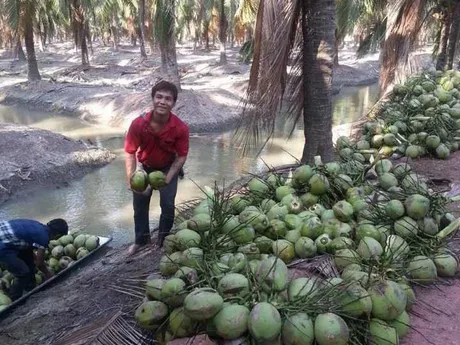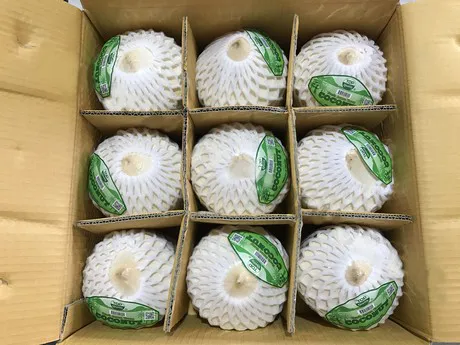At this time of year, many of the coconuts entering the US market are being sourced from Thailand. These include the young coconuts which are mainly used for the juice they contain, as well as the fruit for the fresh market. Thailand supplies the United States all year round and production remains relatively steady. Right now, the market is good even though peak demand has passed.
"We ship our coconuts from Thailand," said Chloe Zhou of Top Quality Produce. "Production is always steady so supplies are readily available all year round, but currently quality is very good. The market is good right now with coconuts selling for close to $2.00 per piece on average, which is a reasonable price. The fruit is most popular in summer when people use coconut juice the most. This can be individuals buying the young coconuts or processors purchasing them to produce coconut water."

According to Zhou, however, much of the coconut water in stores is watered down and she believes the best way to drink coconut water is directly from the fruit itself. "Only when buying a fresh coconut and drinking the juice from it will you get the real taste," she said.
"King" Coconut not attracting many buyers in US
One of the fresh coconut products on offer is the "King Coconut", so named because the fruit itself is larger. Suppliers say these are also sweeter than the young coconut, which has had less time to mature on the tree. "The King Coconut stays on the tree for a week longer," Zhou explained. "This enables the fruit to gain more nutrition from the tree - to ripen longer, and therefore the skin is harder and the water inside is sweeter. Young coconuts are picked sooner and have softer meat."
Zhou noted however, that the King Coconut requires more processing because the husk is removed and the inner shell polished, particularly for the US market. The US market prefers a clean looking fruit and additionally, they do not make use of the outer husk, which is widely used in Thailand. Hence, processing them before shipping makes more sense.

"The skin of the coconut is used in Thailand for various uses including textiles, however in the US it is simply discarded and becomes waste. So there are factories in Thailand that take the husk off and polish the inner shell prior to shipping. This increases the cost by about $3.00 per case although it is better for the environment."
However, the US market does not appear willing to pay the additional cost, and as a result, the company is discontinuing the product. "There are anywhere between 10 and 20 containers that arrive in Los Angeles each week," Zhou observed. "We have been trying to offer the King Coconuts for three years now but it's not working out and therefore we have stopped the program."
For more information:
Chloe Zhou
Top Quality Produce
Tel: +1 (626) 968-2288
info@topquality-produce.com
www.topquality-produce.com
